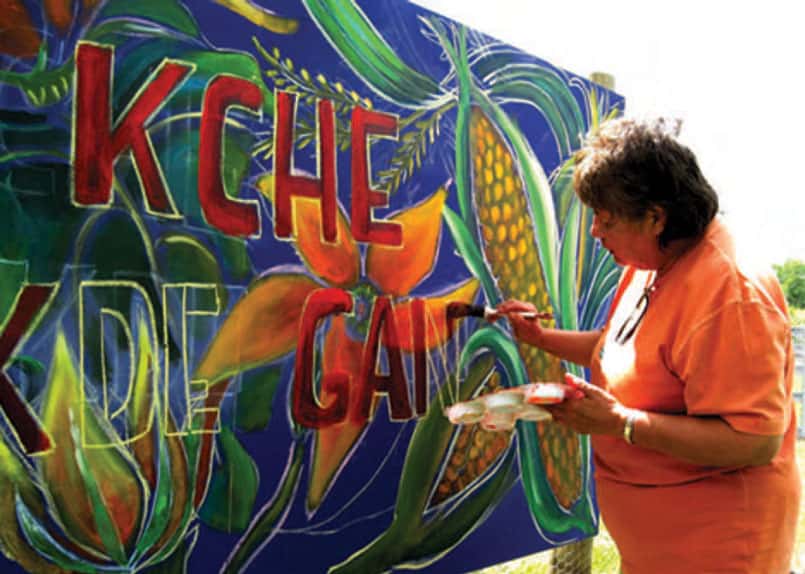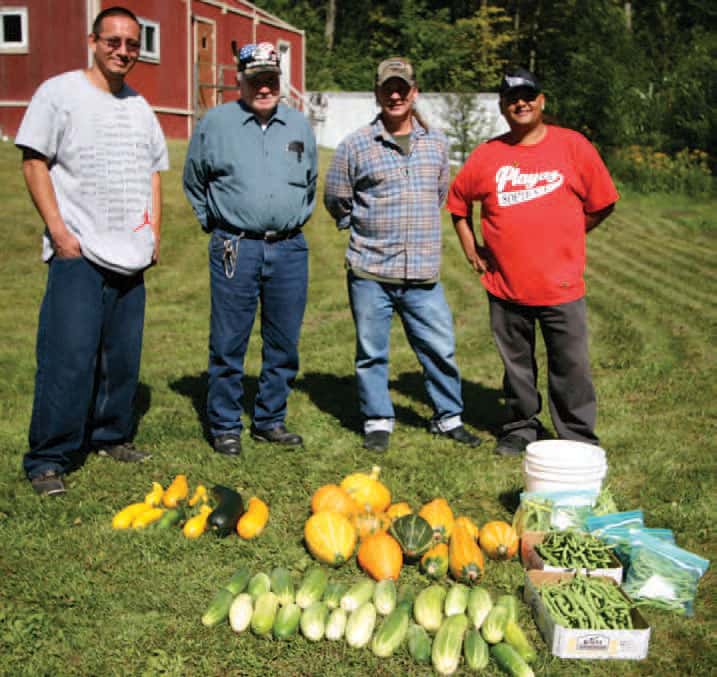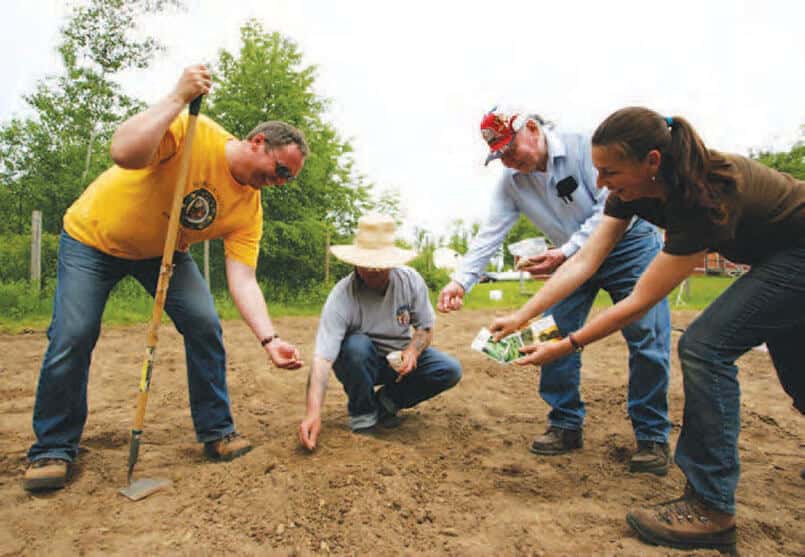by Val Niehaus It’s that time of year – spring is here. We are all certainly hoping the weather continues to cooperate and that summer is on its way. Not only does spring/summer bring exciting thoughts of swimming and long bike rides, but it’s also that time of year when people who love getting their hands dirty can actually play in the dirt. Spring means planting season is near and with that come plans for the start of the “Kche Kte Gan” which is Potawatomi for big garden. The FCP Language & Culture Department is hoping to start preparations for the garden within the next month or so. Billy Daniels Jr., FCP director of Language & Culture, is always very excited to start this project. As with every year, it results in the department being able to give these vegetables to the local elders and the rest of the community.

PTT was able to sit down with Daniels and Brian Franz, FCP Language & Culture teacher/apprentice, for an in-depth conversation about the heirloom seeds that have been in the hands of the department for many, many years. The two said these seeds are passed down through the generations and are as old as when the Native people were first here on this land. Some of those considered heirlooms include the Miami Squash seeds, Hidatsa seed, Stockbridge, Norridgewock, as well as a few others. Franz said that they don’t plant these seeds every year. They are spaced out in different years so that they stay true to themselves and to ensure they don’t cross pollinate with something else. Franz also makes sure he keeps seeds from two years prior so that if a bad season of growing comes along, they will still have seeds so they never lose this strain of plant. He said, “You never know what this weather will do, and you don’t want anything like a blight coming in and taking these crops away for good. So, we always keep plenty of seeds to have for future generations.”
Daniels explained to PTT how when he was younger, everyone around this area had HUGE gardens. Sometimes they would have four or five, with each being 100 x 100 feet or larger. The harvest from these gardens is what they lived off of in addition to the hunting and fishing. He explained, “My mother would take the ashes from the wood fire and dump them into the garden to help with the growing process. Also, wherever our horses were the year before is where we would place our garden the next year.” Daniels explained how they then harvested these plants and stored them in a root cellar during the winter months.
The growing and harvesting seasons were also a very spiritual time for families as everything was coming from Mother Earth. Each time something was planted, harvested, or distributed, there was a prayer or blessing said for that specific event. This is still done to this day. Franz said, “We always say a prayer before planting or even starting the garden; we ask permission to dig and to plant these seeds. We then say another during harvesting and one more for when we take these vegetables to our elders.”

Gardening is a tradition that has been passed down for as long as people have lived on this place we call Earth. The harvest feeds our bodies and the gardening process and work feeds our souls. It is an activity that can be done as long as there is the space and the right weather conditions to plant and harvest the many foods we eat. It is nice to know the FCP Language and Culture department is doing their part to provide fresh homegrown vegetables to the community as well as making certain the heirloom seeds are maintained to preserve this heritage for future generations.
*Photos courtesy PTT archives. **When the sign with the garden name was created (as shown in photo), the spelling was incorrect. The spelling in the title is the correct spelling.
[PDFDownloadButton url=”https://www.fcpotawatomi.com/wp-content/uploads/2015/04/May-1st-2015.pdf” title=”May 1, 2015 – Full Issue”]

